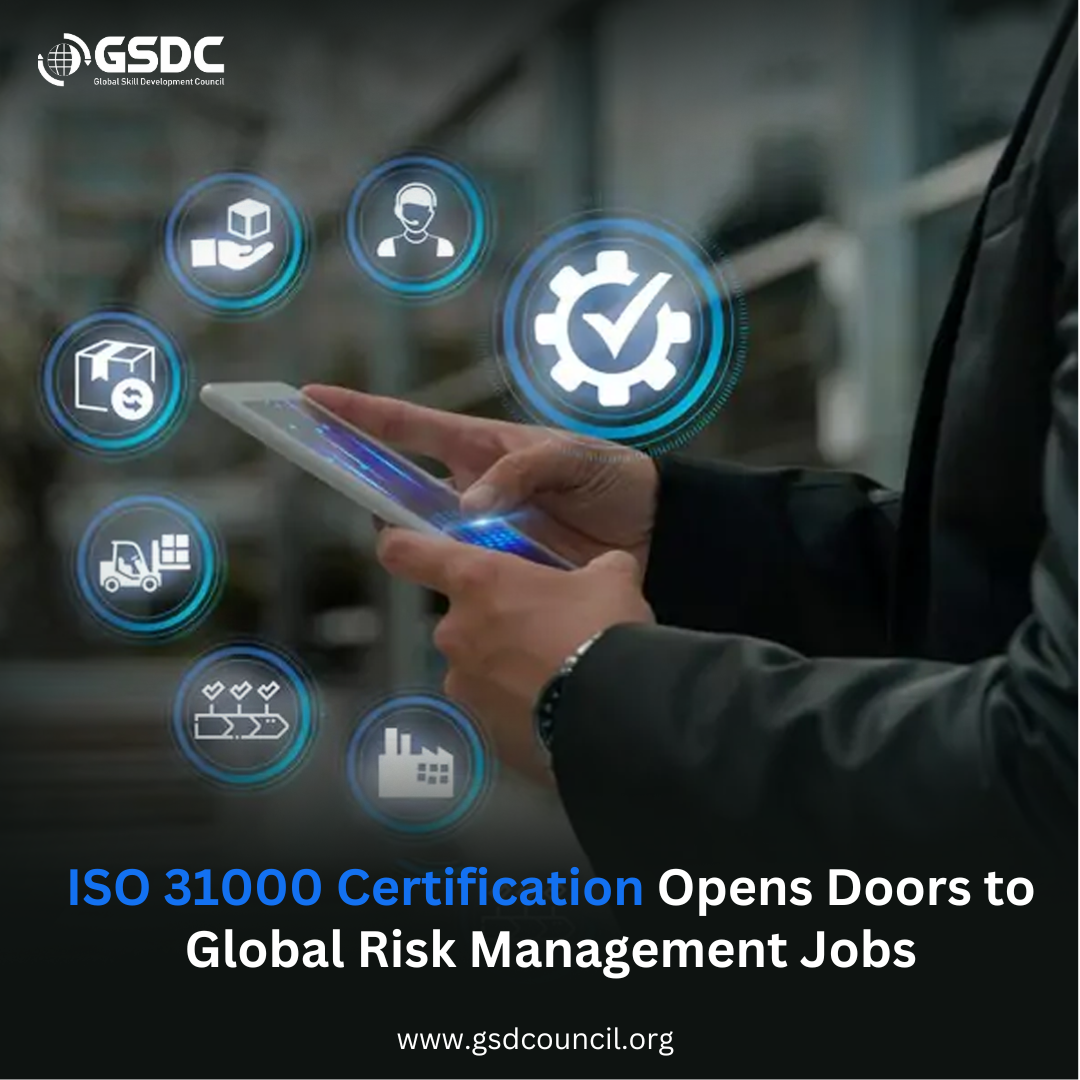The ISO 31000 Certification is a valuable credential that equips risk professionals with the expertise needed to assess, mitigate, and manage risks proactively. By obtaining this certification, individuals and businesses can stay ahead of evolving threats and drive sustainable success.
In today’s volatile and complex global business environment, organizations are prioritizing proactive risk management like never before. As a result, professionals equipped with the right certifications are in high demand across industries. One certification that stands out is the ISO 31000 Risk Management Certification. Recognized worldwide, it not only strengthens your understanding of risk management frameworks but also opens doors to lucrative global job opportunities in both public and private sectors.
1. Global Acceptance of ISO 31000
ISO 31000 is a universally accepted standard for risk management, offering principles and guidelines that can be used by all organizations—irrespective of size, industry, or geography.
Being ISO 31000 certified indicates to employers across borders that you:
· Know global risk management standards.
· Can effectively implement and evaluate risk strategies.
· Are committed to global best practices.
Such acceptance translates into enhanced employability across global markets.
2. Strong Demand Across Diverse Industries
From healthcare and finance to construction, IT, energy, and government—every sector requires professional risk practitioners. Organizations look for certified ISO 31000 risk managers who are able to:
· Identify, evaluate, and manage emerging risks.
· Link risk management to organizational goals.
· Assure adherence to international regulatory requirements.
As risk becomes increasingly sophisticated, the demand for certified practitioners is rising in markets such as the UAE, Europe, North America, and Southeast Asia.
3. Competitive Advantage in the Job Market
ISO 31000 Certification provides you with a distinct advantage in the competitive employment market by:
· Illustrating your dedication to professional growth.
· It exhibits that you are capable of making risk-based decisions.
· Enhancing credibility while seeking international risk manager positions.
Mostly, hiring managers prefer candidates who possess industry-standard certifications, particularly those for senior or strategic positions.
4. Increases Career Roles & Opportunities
ISO 31000 Risk Management Certification equips professionals to assume numerous job titles like:
· Risk Analyst
· Risk Manager
· Compliance Officer
· Chief Risk Officer (CRO)
· Business Continuity Manager
· Enterprise Risk Consultant
These jobs are often found in multinational corporations, consulting firms, banks, and government agencies.
5. Develops Strategic Thinking & Leadership Skills
Risk professionals are not only implementers—they are strategic advisors. This certification enhances your:
· Decision-making under uncertainty
· Analytical and strategic thinking
· Communication with stakeholders at all levels
· These are key leadership skills in global risk positions.
6. Provides Flexibility and Remote Career Opportunities
With globalization and digitalization, most companies provide remote or hybrid roles in risk management. With an ISO 31000 certification, you can work with global teams or even consult internationally—without having to be physically located somewhere.
ISO 31000 Certification is more than a professional credential—it's a passport to global career advancement in risk management. It enables professionals with the skills, tools, and authority required to succeed in global jobs, adjust to changing risks, and drive organizations toward resilience and sustainability.





Comments